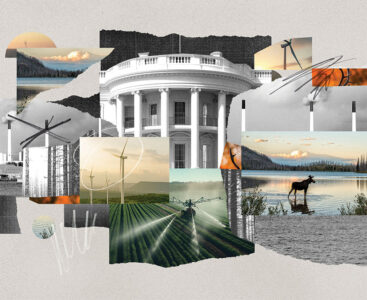Climate-Smart Agriculture and Forestry

Policy lab research projects led by David J. Hayes, JD ’78, lecturer in law, to advise the U.S. Department of Agriculture and the White House on incentives for climate-smart agriculture and forestry practices resulted in two reports with clear recommendations for policy action. “Data Progress Needed for Climate-Smart Agriculture” calls on the USDA to invest in newly available technology to more accurately and reliably confirm increases in soil carbon and reductions in methane and nitrous oxide emissions from the deployment of climate-smart agricultural practices. Similarly, the “Measuring the Carbon (and Other) Benefits of Climate-Smart Forestry” report emphasizes that until and unless more focus is put on MMRV (measuring, monitoring, reporting, and verifying) and carbon removals from climate-smart forestry practices, skeptics will continue to question the climate benefits of such practices. “These reports demonstrate that without more attention on confirming specific, quantifiable benefits of climate-smart agricultural and forestry practices, they will not fulfill their global potential to combat climate change,” says Hayes, former special assistant to President Biden for climate policy. “Aided by these reports, however, the White House is moving forward with a new national strategy to advance a greenhouse gas measurement, monitoring, and information system.” SL
